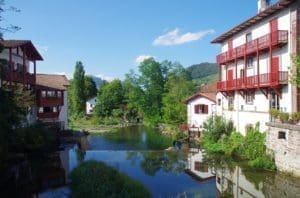The Portuguese Jewish community in Germany – Entitlement to Portugal Citizenship
The Portuguese Jewish community in Germany was initially concentrated in Hamburg, in northern Germany. It first numbered some 600 Jews, whose arrival helped breathe new life into the Hamburg economy. These Jews had connections with European royal houses in Spain, Portugal, Sweden, Poland, Lithuania, Denmark, and more. The community notables were known for their great wealth, talent in influencing the ruling powers, and high level of education. They rose to the top in almost every free / aristocratic enterprise to which they turned their hand.
Portuguese passport for descendants of the German Sephardic Jewish community
Descendants of the Portuguese Jewish community in Hamburg and throughout Germany are eligible for a Portuguese passport. Contact our law offices and make an appointment regarding obtaining Portuguese citizenship.
What are the advantages of a Portuguese passport?
- The option to reside in and freely move between the countries of the European Union.
- Travel to the U.S. – without obtaining a visa in advance..
- A work permit in EU countries.
- Entering and staying in Britain without difficulty (until Brexit takes effect).
- Establishing a business or owning real estate in European countries.
The Portuguese Jewish community in Germany:
 Iberian Jewish emigration to Hamburg began in 1590. Portuguese emigrants arrived in the area from the neighboring Antwerp and Amsterdam, then under control of the Dutch Republic. With the renewal of hostilities between the Spanish and the Dutch in the 80 Years War, part of the Portuguese Jewish community was forced to emigrate to Hamburg. This happened for two primary reasons: first, because of damage to the Jews’ trade business, which relied on exporting and importing to and from the Iberian Peninsula; and second, their being suspected of spying for the Spanish side, and their resulting fear of the Dutch authorities. As a result, some 120 Sephardi families and 50 Ashkenazi families came to live in Hamburg.
Iberian Jewish emigration to Hamburg began in 1590. Portuguese emigrants arrived in the area from the neighboring Antwerp and Amsterdam, then under control of the Dutch Republic. With the renewal of hostilities between the Spanish and the Dutch in the 80 Years War, part of the Portuguese Jewish community was forced to emigrate to Hamburg. This happened for two primary reasons: first, because of damage to the Jews’ trade business, which relied on exporting and importing to and from the Iberian Peninsula; and second, their being suspected of spying for the Spanish side, and their resulting fear of the Dutch authorities. As a result, some 120 Sephardi families and 50 Ashkenazi families came to live in Hamburg.
Persecution of Sephardi Jews in Germany
In the first 100 years of their settlement there, the Portuguese Jews in Germany were obligated to hide their religion because of the “Ban on Demonstrating the Despised Religion,” a law instituted by the local authorities in Hamburg. As a result, the Portuguese Jews were compelled to live as forced converts, as they had done in Portugal. Despite this, the German residents did not stop at merely relegating the Portuguese Jews to a low social status, but continued to complain to the authorities that they did not want to live next to Jews.
The German residents demanded the expulsion of the Portuguese Jews, repeatedly informing on them to the church priests, accusing them of religious or financial infractions (tax evasion). The clerics brought the residents’ accusations to the legislators at City Hall, who ruled that the Jews could stay.
However, their only reason for rejecting the residents’ claims and allowing the Portuguese Jewish community to remain in the city, was the economic benefit obtained from the high taxes levied on the Portuguese expellees. For example, at the beginning of the 17th century, a tax of some 1,000 marks was levied on the Jewish business owners. By the end of that century, the tax rate had gone up to as much as 6,000 marks. The Jews found themselves “drowning” in debt to the government, and some of them emigrated to other European countries as a result.
Economic success of the Portuguese Jews in Germany:
When the Portuguese forced-convert communities came to Hamburg, they adapted themselves well to the local and international market. Thanks to their excellent ties with Spain and Portugal, they were the first, and almost exclusive, importers of commodities such as sugar, tobacco, spices, cotton, coffee, grain, olive oil, and even arms arriving from the far-flung Spanish and Portuguese colonies. Jews were the founders of “Hamburg Bank” in 1619; official ambassadors of the Swedish, Polish, and Portuguese kingdoms; authors, doctors, astronomers, shipbuilders, and craftsmen in weaving, metalworking, etc.
The Jewish expellees had a particular advantage which enabled them to climb the German social ladder and become a social elite in Hamburg: their command of the Spanish and Portuguese languages, which were the most potentially valuable in business during this period. The Portuguese Jewish immigrants contributed greatly to trade in Hamburg and eventually became the undisputed leaders in this sector. Before 1611 three synagogues were built in Hamburg, in memory of the three Portuguese communities that united into one community which became known as Beit Yisrael (House of Israel).
Notable Portuguese/Spanish Jews in Germany:
-
Rabbi Joseph Solomon Delmedigo – (1591 – 1655):
Rabbi and rabbinical judge of the Sephardic community in Hamburg. Studied medicine and science at Padua University in Italy, which was considered the most outstanding center of learning in Europe in those years. His science teacher was the famous astronomer Galileo Galilei, who is referred to as “my teacher” (“rabbi”) in Delmedigo’s writings. Before his appointment as the rabbi of Hamburg, he served as the doctor for the Prince of Lithuania. He was also a philosopher, mathematician, writer, musical researcher / theoretician, critic of Kabbalah and an expert in languages: Greek, Latin, Italian, Spanish, and more. The “Hida” (Rabbi Haim Yosef David Azulay) said of him, “He was wise in all fields of wisdom and outstanding in all wisdom – numbers, geometry, philosophy, astronomy, logic, medicine, a Torah sage, in Talmud and commentaries, an outstanding preacher, with wide knowledge.”
-
Rodrigo Da Castro – (1550-1627):
A doctor and descendant of a famous Portuguese medical family which served at the palace of the Portuguese kings for at least 4 generations. Studied medicine and philosophy at Salamanca and Evora Universities. When he completed his studies, the Portuguese monarch Philip II asked him to travel to eastern India to collect herbs for medical research and study. However, he refused the King’s request because of the persecution of the Inquisition and the pogroms which broke out at that time. He fled to Antwerp with his wife and children, where he succeeded in inventing medications by combining herbs and acquired a name for himself among Jews and local residents. In 1594 he moved with his family to Hamburg, where he made his living as a successful doctor.
-
Benjamin Mosafa – (1606-1675):
Famous doctor in Hamburg, philologist (researcher of ancient manuscripts), lexicographer, and alchemist. He was a physician to the kings of Denmark, including Christian the Fourth and Frederick the Third. Wrote several books, including a medical text in Latin, a work entitled “Sea Water”, dealing with high and low tides, for the King of Denmark, a prayer-book, and a Hebrew dictionary. He also knew Greek, Spanish, and German. He was a member of the Rabbinical study center in Amsterdam.
Additional articles on Portuguese and Spanish expellee communities in various countries:
- Spanish Jewish community life in Croatia
- The Spanish-Jewish settlement and its influence in Syria
- Spanish Jewish expellees’ success in Romania
- Spanish expellees put an end to the danger of Jewish genocide in Libya
- The distinguished Spanish-Jewish community in Algeria
Contact attorneys regarding Portuguese citizenship
Our law offices have over 30 years of experience in the field of immigration. The office maintains ties with the Portuguese Jewish community in Lisbon and in Porto, who provide the recommendation letter required to establish eligibility for a Portuguese passport.
We will be happy to perform an immediate eligibility check for you. Call us to set up an appointment with an attorney in Tel Aviv or Jerusalem.
מאמרים מומלצים

